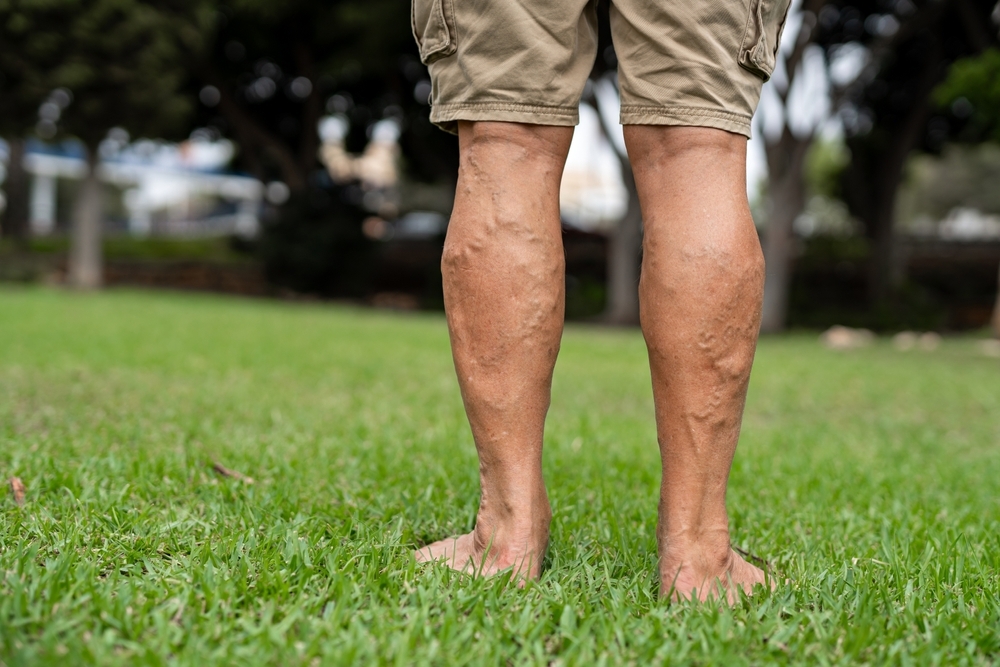Will A Vein Condition Go Away On Its Own?

Have you ever looked at the veins on your legs and hoped they would just disappear? Many of us have been there. We notice the symptoms of a possible vein condition and promptly start wishing it will all go away on its own. I hear similar thoughts from patients in my clinic all the time: “It’s not really that bad,” or “It’s just a sign of getting older.” Some try to toughen up and grit through it, while others worry about insurance or wonder if a healthier lifestyle will reverse the problem.
I did the same thing myself with my own vein condition. I suffered in silence and procrastinated on my own treatment for years. The truth is, a vein condition will not go away on its own once it has started. If you've had similar thoughts and hopes, here’s what you need to know about why that is and what you can do about it.
Key Takeaways
- Once a vein condition like venous insufficiency starts, it will not go away on its own and typically worsens over time without treatment.
- The only major exception is pregnancy, where varicose veins may improve after delivery, but the underlying vein weakness often remains and can reappear.
- Sometimes a vein can close off on its own through a painful process called phlebitis, but this is an inflammatory complication that requires medical evaluation.
- While home remedies like compression stockings can manage symptoms, only specific vein treatments can address the underlying cause of the problem.
Why Varicose Veins Don’t Magically Disappear
The fact is that varicose veins are a sign of an underlying medical issue, and they will not simply fade away. Unfortunately, those clusters of enlarged and sometimes twisted veins will only worsen over time, often getting bigger and more uncomfortable. They are the result of a condition called venous insufficiency, or vein reflux, where the tiny one-way valves inside your veins have become weak or damaged.
Think of these valves as little gates that keep blood flowing up toward your heart. When they fail, blood flows backward and pools in the lower legs. This pooling is what causes veins to bulge and stretch. This mechanical problem can only be corrected with specific treatment. Things like leg elevation, supplements, lotions, and oils might provide temporary relief from symptoms like aching or swelling, but they are not effective in treating the underlying condition. They are like putting a bandage on the problem. Only vein treatment can fix the faulty "gates."
The One Exception: Pregnancy
The only scenario where varicose veins may seem to go away on their own is after pregnancy. During those nine months, hormonal changes and the increased pressure from the baby on the abdomen and pelvis can lead to pregnancy-related vein reflux. The hormones are designed to expand your blood volume to deliver blood to the placenta, and as a result, the veins dilate to accommodate this.
You may experience leg swelling, fatigue, and discomfort in your lower legs after sitting or standing. You might also see the development of small spider veins or bulging varicose veins. Once the baby is born and hormone levels return to normal, the pressure is relieved, and veins typically reduce in size. For many, the visible veins seem to return to normal.
However, it’s important to understand that the improvement doesn't mean the problem is gone for good. Once the valves in your veins weaken, they may never return to their original, fully functional state. There is a high likelihood that varicose veins will return with subsequent pregnancies. There is also a chance that vein reflux will become more noticeable as you age, even without having more children.
In the past, vein treatments were not recommended until after you were done having children. However, current treatments are so well-tolerated and easy to go through that this advice has changed. They can really help relieve symptoms and get rid of unsightly veins. The current recommendation is to go ahead and have vein treatment between pregnancies if you are experiencing symptoms, rather than waiting.
Can a Vein Heal Itself? The Case of Phlebitis
Sometimes, a vein can close off on its own, but it’s not a pleasant process. You might experience a sore, red, and angry-feeling vein in your leg. This is a condition called phlebitis, which is an inflammation of the vein. What’s really happening is that the vein has spontaneously clotted and closed off. The blood is trapped inside, causing a significant inflammation reaction that is very uncomfortable and can last for several weeks, or even a month. You might even see an alarming red streak along your leg.
If this happens, you should get a vein ultrasound from your primary care provider to make sure you don't have a Deep Vein Thrombosis (DVT), a more serious clot in a deeper vein that can sometimes accompany phlebitis. In this case, the vein in trouble has closed down, and very often it shuts down permanently. However, sometimes that vein can open back up again on its own. It's difficult to predict, which is why a follow-up ultrasound is needed to keep track of what’s going on.
What Can Be Done About a Vein Condition?
While you can’t cure a vein condition on your own, there are steps you can take to manage the symptoms. It’s also not uncommon for insurance companies to require you to try some of these conservative measures, like wearing compression stockings, for a period of 30 to 90 days before approving treatment. Keep in mind that these solutions won’t make the vein condition go away, but they can make it less painful to deal with.
The only solution that will address the underlying condition is vein treatment. If you think you may be struggling with a vein condition, don’t wait. I put off my own vein treatment when I was in my 20s, thinking I could ignore it and that I didn’t have time. I could have ended the misery from my own leg condition much sooner than I did. In fact, one of the most common things patients tell me after treatment is that they wished they’d sought help sooner. A vein screening is a quick, easy, and painless assessment that can provide you with the answers you need.
Frequently Asked Questions (FAQs)
1. If my varicose veins aren't painful, do I still need to worry about them?
Even if your varicose veins don’t hurt, they are a sign of venous insufficiency, which is a progressive condition. Over time, it can lead to symptoms like swelling, skin discoloration, and even ulcers. It’s always best to get an evaluation to understand the health of your veins.
2. Can exercise make my varicose veins go away?
Exercise is great for your circulation and can help manage symptoms like aching and swelling. However, it cannot repair the damaged valves inside the veins. Therefore, while activities like walking and swimming are beneficial, they won't make the varicose veins disappear.
3. Will losing weight cure my varicose veins?
Losing weight can reduce the pressure on your leg veins and may help alleviate some symptoms. It is a positive step for your overall health and can slow the progression of the condition, but it will not reverse the existing vein damage or make varicose veins go away.
4. Are there any creams or supplements that can get rid of varicose veins?
There are many products that claim to treat varicose veins, but unfortunately, none can fix the underlying mechanical issue of faulty vein valves. Some creams may temporarily soothe the skin, but they cannot fix the underlying issue of vein reflux.
5. What happens if I just ignore my varicose veins?
Ignoring a vein condition allows it to progress. What might start as a cosmetic issue can evolve into physical discomfort, including aching, throbbing, and swelling. In advanced stages, it can lead to more serious problems like skin changes, chronic inflammation, and non-healing leg sores (ulcers).
If you’re experiencing leg swelling, discomfort, or visible veins, Missouri Vein Care offers trusted vein care in Missouri. If you are researching vein clinics learn what modern vein treatment looks like today. and see what to expect on your first visit, explore our New Patients page.




